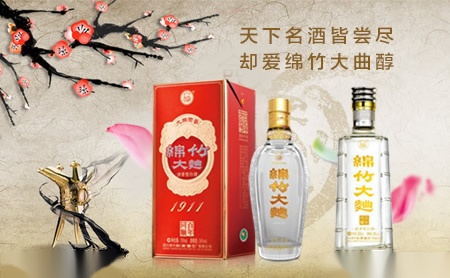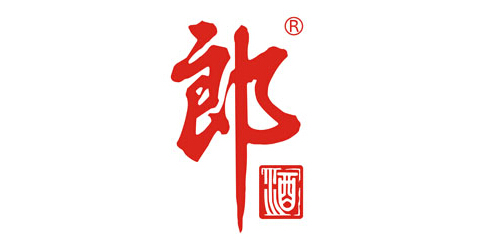绵竹大曲品牌怎么样 申请店铺
外推网助力绵竹大曲品牌出海!将品牌入驻外推网,定制绵竹大曲品牌推广信息,可以显著提高绵竹大曲产品曝光,简直是跨境电商爆单神器!目前仅需1000元/年哦~

非物质文化遗产,全国重点文物保护单位,主要从事系列酒类生产/加工/经营于一体的综合性企业
四川剑南春集团有限责任公司是中国大型白酒企业,位于历史文化名城——绵竹,地处川西平原,自古便是酿酒宝地。公司以酒类经营为主业,不断拓展经营领域:公司下属有四川剑南春对外经济贸易公司、四川剑海投资有限公司、四川蓝剑包装股份有限公司、四川森普管材股份公司、四川金瑞电工有限公司、四川剑南春桥联重工有限公司、绵竹金盛源生物化工有限责任公司、四川绵竹剑南春大酒店有限公司、四川绵竹剑南春森林公园有限公司、绵竹富利泰投资发展公司等30多家全资子公司和控股子公司,投资涉足包材生产、铬铁生产销售、变压器电缆、PE管道、旅游等多种领域 。现有员工10000余人,其中从事酒类生产经营的约7000人。2011年,实现销售收入61亿元,实现税费11亿元。
剑南春是一家具有1500多年酿酒历史的中国大型白酒企业。1951年5月5月1日,绵竹人民政府将“朱天益”、“杨恒顺”、“泰福通”、“天成祥”等30多家酒坊收归国有,成立了“四川绵竹地方国营酒厂”,1984年正式更名为“四川省绵竹剑南春酒厂”,1994年改制为“四川剑南春股份有限公司”,1996年组建成立“四川剑南春集团有限责任公司”。
大唐皇室的长期御用奠定了剑南春 大唐国酒 的历史地位,深深烙上了盛唐文明的印迹。剑南春酒的产地绵竹,酿酒历史已有三、四千年。广汉三星堆遗址出土的陶酒具和绵竹金土村出土的战国时期的铜罍、提梁壶等精美酒器、东汉时期的酿酒画像砖(残石)等文物考证以及《华阳国志?蜀志》、《晋书》等史书记载都可证实:绵竹产酒不晚于战国时期。早在1200多年前剑南春酒就成为宫廷御酒而记载于《后唐书?德宗本纪》,中书舍人李肇所著的《唐国史补》中也将其列为当时的天下名酒。宋代,绵竹酿酒技艺在传承前代的基础上又有新的发展,酿制出“鹅黄”、“蜜酒”,其中“蜜酒”被作为独特的酿酒法收于李保的《续北山酒经》,被宋伯仁《酒小史》列为名酒之中。清康熙年间(公元1662~1722),出现了朱、杨、白、赵等较大规模酿酒作坊,剑南春酒传统酿造技艺得到进一步发展。《绵竹县志》记载:“大曲酒,邑特产,味醇香,色洁白,状若清露。至1949年,专门经营绵竹大曲的酒庄、酒行、酒店已达50余家,绵竹大曲被称为成都“酒坛一霸”。而且还销往重庆、武汉、南京、上海等地。台湾《四川经济志》称:“四川大曲酒,首推绵竹。”
Intangible cultural heritage, a national key cultural relic protection unit, Sichuan Jiannanchun Group Co., Ltd., a comprehensive enterprise mainly engaged in the production / processing / operation of a series of liquor, is a large-scale liquor enterprise in China. It is located in Mianzhu, a famous historical and cultural city, located in the West Sichuan Plain, and has been a wine making treasure since ancient times. The company's main business is alcohol business, and its business scope is constantly expanded: its subordinate companies include Sichuan Jiannanchun foreign economic and trade company, Sichuan Jianhai Investment Co., Ltd., Sichuan Blue Sword Packaging Co., Ltd., Sichuan Senpu Pipe Co., Ltd., Sichuan Jinrui Electric Co., Ltd., Sichuan Jiannanchun bridge heavy industry Co., Ltd., Mianzhu Jinshengyuan Biochemical Co., Ltd., Si More than 30 wholly-owned subsidiaries and holding subsidiaries, including Sichuan Mianzhu Jiannanchun Hotel Co., Ltd., Sichuan Mianzhu Jiannanchun Forest Park Co., Ltd. and Mianzhu fulitai Investment Development Co., Ltd., have invested in various fields such as packaging material production, ferrochrome production and sales, transformer cable, PE pipeline, tourism, etc. There are more than 10000 employees, including about 7000 engaged in alcohol production and operation. In 2011, the company realized sales revenue of 6.1 billion yuan and taxes of 1.1 billion yuan. Jiannanchun is a large Chinese liquor enterprise with a history of more than 1500 years. On May 1, 1951, Mianzhu people's government nationalized more than 30 wineries, including Zhu Tianyi, Yang Hengshun, taifutong and tianchengxiang, and established "Sichuan Mianzhu local state owned winery". In 1984, it was officially renamed as "Sichuan Mianzhu Jiannanchun winery", in 1994, it was restructured as "Sichuan Jiannanchun Co., Ltd." in 1996, it was founded as "Sichuan Jiannanchun winery" Group limited liability company ". The long-term use of the royal family of the Tang Dynasty established the historical status of Jiannanchun Tang national wine, which was deeply branded with the traces of Tang civilization. Mianzhu, the origin of Jiannanchun liquor, has a history of three to four thousand years. The pottery and wine wares unearthed from Sanxingdui site in Guanghan, the fine wine vessels unearthed from Jintu village in Mianzhu in Warring States period such as bronze wares and teapots, the cultural relics such as wine making portrait bricks (residual stones) in the Eastern Han Dynasty, and the historical records such as records of Huayang state? Records of Shu and Jinshu confirm that the wine production of Mianzhu is no later than that of Warring States period. Jiannanchun wine was recorded in the book of emperor Dezong in the late Tang Dynasty as early as 1200 years ago, and it was also listed as the world famous wine in the book of Tang Dynasty history supplement written by Li Zhao, the author of the book. In the Song Dynasty, Mianzhu wine making technology had new development on the basis of inheriting the previous generation. It brewed "goose yellow" and "honey wine". Among them, "honey wine" was received in Libao's "xubeishan wine classic" as a unique wine making method and listed as a famous wine by song Biren's "wine history". During the reign of Emperor Kangxi of the Qing Dynasty (1662-1722 A.D.), large-scale winemaking workshops such as Zhu, Yang, Bai and Zhao appeared, and the traditional brewing techniques of Jiannanchun wine were further developed. "Mianzhu County annals" records: "Daqu liquor, a local specialty, is mellow, white and dew like. By 1949, there were more than 50 wineries, liquor stores and hotels specializing in Mianzhu Daqu, which was known as the "wine king" in Chengdu. And also sold to Chongqing, Wuhan, Nanjing, Shanghai and other places. "Mianzhu is the first major liquor in Sichuan," said Taiwan's Sichuan Economic chronicle
本文链接: https://brand.waitui.com/aded43be0.html 联系电话:请联系客服添加 联系邮箱:请联系客服添加


















 浙公网安备 33011802001999号
浙公网安备 33011802001999号
